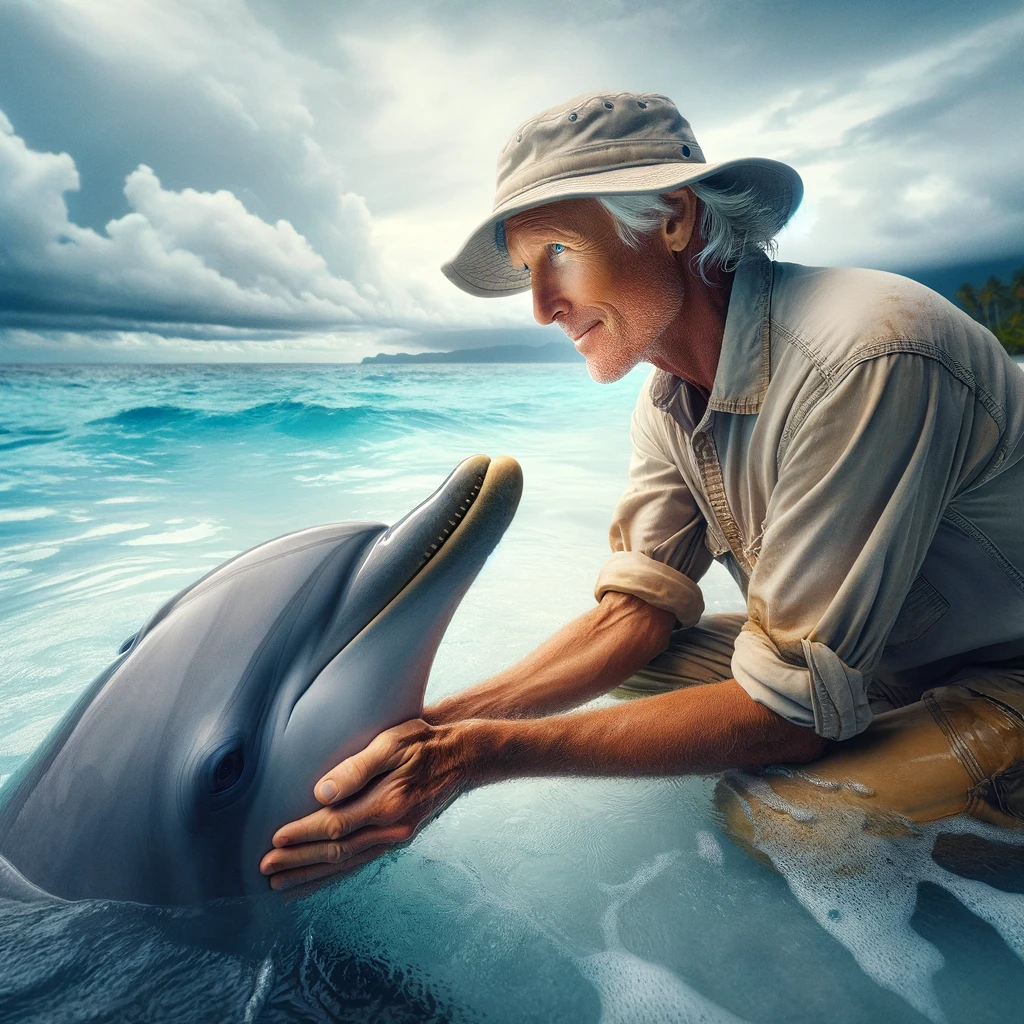Ric O’Barry is a name synonymous with dolphin conservation. His journey from a dolphin trainer for the popular television show “Flipper” to a leading advocate against dolphin captivity highlights a profound transformation driven by personal conviction and a deep love for these intelligent marine creatures. O’Barry’s work has exposed the grim realities of dolphin hunting and captivity, bringing to light the importance of conservation and ethical treatment.
The Flipper Years: From Trainer to Advocate
Ric O’Barry’s career began in the entertainment industry, where he captured and trained dolphins, including the five dolphins that played the role of Flipper in the iconic 1960s TV show. However, the death of Kathy, one of the Flipper dolphins, in his arms, sparked a radical change in O’Barry. He recognized the profound intelligence and emotional capacity of dolphins, leading to a realization of the cruelty of their captivity. This moment marked the beginning of his transformation into a dolphin advocate.
The Cove: Exposing the Dark Side of Dolphin Captivity
Perhaps O’Barry’s most significant contribution to dolphin conservation came with his involvement in the 2009 documentary, “The Cove.” The film, which won an Academy Award, exposes the brutal dolphin hunting practices in Taiji, Japan. O’Barry’s efforts in the documentary helped bring international attention to the plight of dolphins, sparking debates and discussions on the ethics of dolphin hunting and captivity.
The Dolphin Project: A Global Conservation Effort
In response to the growing need for a focused conservation effort, Ric O’Barry founded The Dolphin Project, an organization dedicated to the protection and welfare of dolphins worldwide. Through advocacy, education, and direct action, The Dolphin Project aims to stop dolphin slaughter, end captivity, and promote wild and free oceans.
Challenges and Achievements
O’Barry’s journey has not been without challenges. He has faced legal battles, confrontations, and public criticism from those within the dolphin entertainment industry. Despite these obstacles, his work has led to significant changes in public perception and policy regarding dolphin captivity and conservation.

Ric O’Barry’s legacy is one of transformation and hope. His story inspires others to consider the impact of their actions on the natural world. As the fight for dolphin conservation continues, O’Barry’s work serves as a beacon for future efforts, emphasizing the importance of compassion, activism, and the relentless pursuit of justice for all living beings.
